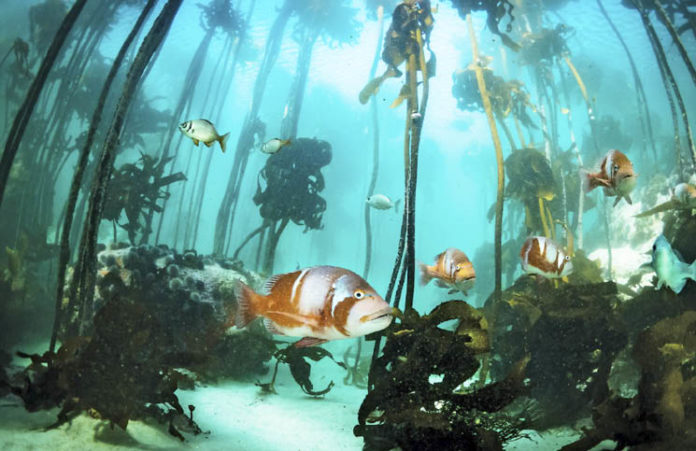
It’s likely you’ve seen My Octopus Teacher by now.
The proudly-South African Oscar won by My Octopus Teacher for Best Documentary Film has laid the foundation for an unprecedented increase in ocean awareness. The film has won multiple awards this season, including the Academy Award for Best Documentary Feature, ACE Eddie Award for Best Edited Documentary (Feature), and BAFTA Award for Best Documentary.
The Netflix’s film, a nature documentary recording the incredible relationship between a filmmaker, Craig Foster and an octopus while diving near his home in False Bay, charmed audiences across the world. The film last year became the first South African documentary to become a Netflix Original. The insightful and fascinating film brought people together last year during an unprecedented and uncertain time. It was released to instant acclaim during the global Covid-19 lockdown, which Pippa Ehrlich, Co-director acknowledges as partly serendipitous to the film’s stellar rise in popularity: “In a difficult year, where many of us were stuck inside, feeling afraid and confused, a positive story that transports you to a magical world has a powerful appeal,” says Pippa.
The documentary’s win is important for film in South Africa because it has focused attention on a local story and the quality of local productions. It demonstrates that it’s possible – working from home with a relatively low budget and a small crew to reach a massive global audience, and win one of the most influential awards in the film world.
Foster, a documentary filmmaker for 28 years, says the Oscar victory brings life-affirming kudos to the media advocacy work by the film’s producing entity the Sea Change Project, which he co-founded with My Octopus Teacher Associate Producer Ross Frylinck in 2012.
“The Academy Award elevates the Great African Seaforest and surrounding ocean of South Africa into global iconic status.”
“This is excellent news for us, because it underlines what we have been aiming for: to show the world that we are sitting on a biodiversity treasure trove that is deeply worthy of protection.”
“What has been most exciting for us as an organisation has been the feedback. We have received thousands of messages from people around the world.”
“Many have started diving, studying marine sciences or using My Octopus Teacher as a tool in mental health workshops, and in discussions around emotional ecology and deep nature connection. We wanted to showcase this wonderful ecosystem, the Great African Seaforest, to the world, and we have succeeded, says Craig Foster.”
Why protect the Great African Sea Forest?
The Great African Sea Forest, which lies off the southwest tip of the African continent, is one of the best kept natural wonders of the world. Its extant of giant sea bamboo kelp is globally unique.
It is a magical, abundant and biodiverse ecosystem. It protects thousands of species and in terms of endemics, it is richer than the Great Barrier Reef; in terms of wildlife drama, the relationships between predators and prey are as spectacular as the Serengeti.
“However, because of how our lifestyle has evolved, we seem to have lost a large part of this deep connection with nature, and hence a large part of ourselves. In the Great African Seaforest, we can track sea-life, learn its behaviours and see nature’s patterns in progress.”
“The love we experience for the Great African Seaforest is built on our daily interactions with this extraordinary place. At Sea Change we are committed to sharing that love and experience with as many people as we can reach.”
“We play a part in bringing our ancient relationship with nature and the ocean back to life by telling her story to the world and photographing this oceanic wonderland,” – Sea Change Project.
For more information visit www.seachangeproject.com

